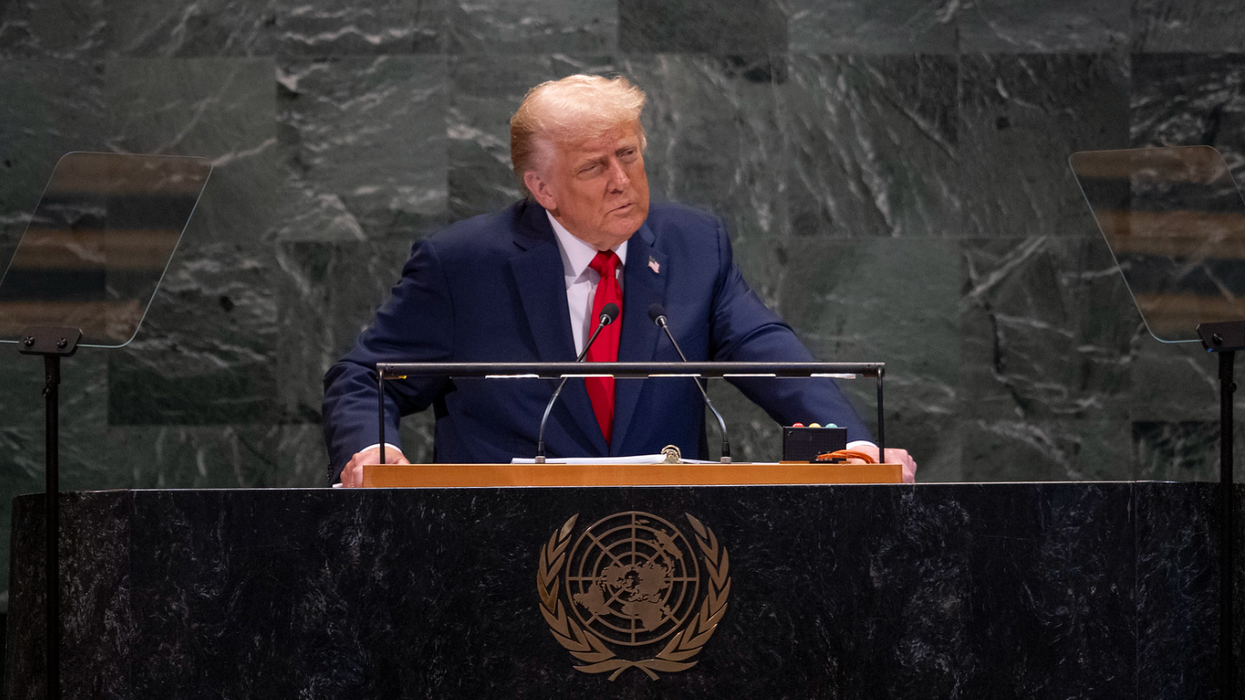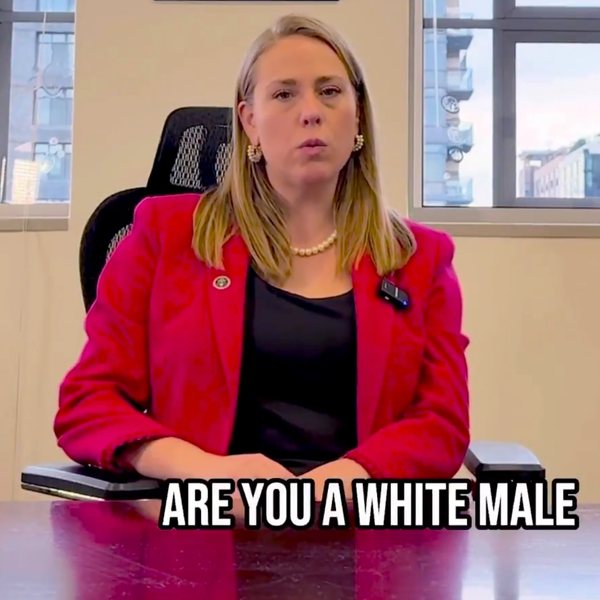Trump Forged Gaza Deal By Dropping His Rejection Of A Palestinian State
Donald Trump deserves ample credit for brokering the ceasefire in Gaza, the return of Israel’s hostages, and the surge of humanitarian aid that may prevent a worse catastrophe for the suffering Palestinians. Should he feel that he has not received enough praise, he will laud himself until nobody can bear to hear another word.
But among the many ironies surrounding this moment, one fact seems central: There would be no deal if Trump and his negotiating team had not abandoned their longstanding opposition to a Palestinian state – and forced the Israeli government led by Benjamin Netanyahu to accept that change against their will.
Only weeks ago, Trump denounced the European recognition of Palestine as a “reward” to Hamas for the “horrible atrocities” perpetrated on October 7, 2023. He mocked France in particular, saying that its official support of a Palestinian state “doesn’t matter” and didn’t “carry any weight.”
Yet in hindsight, the Europeans were clearly correct to insist that only the revival of a two-state solution, much mocked in the United States, would create conditions for a ceasefire and a serious peace plan. Trump undoubtedly learned as much in his consultations with his friends (and business partners) in the Gulf states and Saudi Arabia – who could not have brought sufficient pressure on Hamas to agree to the deal’s terms, including its own disarmament and sidelining, without that fundamental concession. To be acceptable to those regimes, from Riyadh to Abu Dhabi to Doha to Ankara, any resolution had to include a Palestinian state.
That is among the reasons why the 20-point agreement that undergirds this ceasefire, and today’s joyous release of hostages and prisoners on both sides, is worth reading in full. It outlines a process for rebuilding and restoring Gaza that junks Trump’s earlier schemes to throw all the Gazans out of their homes for a gold-plated Mediterranean Las Vegas.
Instead, the deal envisions a transitional period that will conclude with a “reformed” Palestinian Authority resuming governance of the strip, and pledges, in clause 12, that “No one will be forced to leave Gaza, and those who wish to leave will be free to do so and free to return. We will encourage people to stay and offer them the opportunity to build a better Gaza.”
The framework for rebuilding “a better Gaza” includes various ideas that must have appealed to Trump, including a special board of world leaders including former British Prime Minister Tony Blair that the US president will chair. Whether those details can be sustained will be seen as the region’s future unfolds.
For reasons best known to the negotiators, however, the most important clauses were reserved for last – perhaps because they depend on the implementation of the prior clauses, perhaps because they were resisted by Israel until the very end. Set down in print, they make an indisputable departure from the hard-right positions of the Trump administration and the Netanyahu government.
The existence of a Palestinian state has long been anathema not just to Trump and Netanyahu but to the Republican right in Washington. Last month, Republican members of Congress sent a mesage to our allies in Europe and Canada scolding them for recognizing a nascent Palestine. Like Trump, who deleted the GOP's traditional platform plank supporting a two-state solution, they were content to undercut the Palestinians and allow Israel free reign everywhere from Jerusalem and the West Bank to the Golan Heights.
The stark difference between then and now is stated firmly in clauses 19 and 20 of the Trump deal, which make a promise that the world will have to redeem:
“19. While Gaza re-development advances and when the PA reform program is faithfully carried out, the conditions may finally be in place for a credible pathway to Palestinian self-determination and statehood, which we recognise as the aspiration of the Palestinian people.
“20. The United States will establish a dialogue between Israel and the Palestinians to agree on a political horizon for peaceful and prosperous co-existence.”
All the parties to this deal face a long and demanding path toward those worthy goals, and their sincerity will be tested repeatedly along the way. There can be little doubt that Netanyahu and perhaps Trump too will attempt to stall and undo those historic changes. But if the American president deserves the acclaim he is receiving today, it is largely owed to his public renunciation of the hardliners in his own party and the Israeli right.
Joe Conason is founder and editor-in-chief of The National Memo. He is also editor-at-large of Type Investigations, a nonprofit investigative reporting organization formerly known as The Investigative Fund. His latest book is The Longest Con: How Grifters, Swindlers and Frauds Hijacked American Conservatism (St. Martin's Press, 2024).









